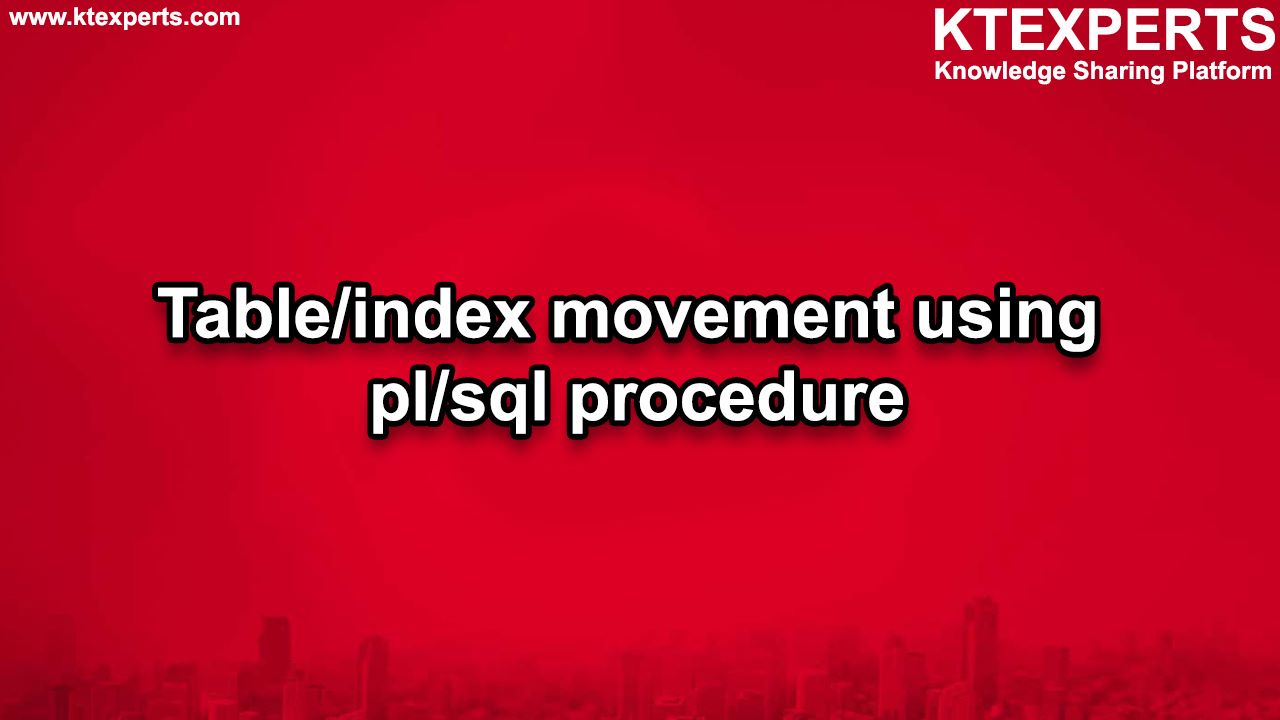1) Proper Documentation which is very important in order to save time and act on issue immediately.
2) DB health check list for Day to Day Activities.
–> Check Alert log
–> Tablespaces
–> Archivelog cleanup script
–> Check OS Watchers scripts are running or not.
–> Setup cronjob for sending email alert for blocking sessions
–> Email alert for Alert log/Listener log monitoring.
–> ASM Disk space
–> Check Datafiles autoextend off or on.
–> Restore points information (Drop Restore points if not needed)
–> Make sure No Application User connections to Prod database.(Any SQL tools)
–> Table statistics (Missing or stale) & Dictionary Statistics
–> Fix Invalid objects if needed drop them after checking with application team.
–> Fix unusable indexes.
–> Make sure No Non SYS Objects in SYSTEM and SYSAUX tablespaces
–> Try to have Primary key on tables.
–> Ensure that all indexes use an index tablespace.
–> Look for objects that break rules (Naming convention/Storage parameters)
–> Keep checking User Account Status (Lock or Expired or Expiring).
–> Check with application team whether Disabled constraint required or not.
–> Make sure standby DB’s are in sync with Primary.
–> Keep monitoring Redo Log generation/Archive log generation (Always maintain 3-4 Days archives on source)
–> Always keep checking Top Segments and if needed implement partitioning.
–> Keep checking Indexes size and if needed rebuild the indexes.
–> Monitor Schema Growth or DB growth which is required for capacity planning. (If needed store this information in tables)
–> Keep track of recent issues and if needed work with Support till issue is fixed.
–> Make sure no files are in recovery mode.
–> Check how many indexes are created on same column?
–> Keep checking tables/indexes with high degree of parallelism. (Do proper analysis before enabling parallelism)
–> Defragment tables which are fragmented.
–> Keep track of High Undo Usage Queries.
–> Make sure RMAN Backups completed successfully.
–> Always keep track of TOP SQL’s(Top Physical Read/Logical Reads/Gets/Elapsed Time)
–> Modify Inittrans for tables/Indexes as per requirement(Do proper analysis before doing this)
–> Keep track of No.of Indexes created on a table and do proper analysis is it required to have so many indexes on table or not.
3) Maintain proper wiki pages for your upcoming tasks, So that you will not miss any task.(Always set reminders)
4) Always try to monitor database jobs using scripts (where it will send emails to you)
5) Filesystem clean up scripts.
6) Always keep access to metalink.
7) Always keep track of PSU patches/OS Patches. (Do Proper testing with good documentation before applying patches or doing OS Changes in production)
8) Keep track of database options which are enabled.
9) Analyze ADDM/ASH/AWR Reports for resizing SGA/PGA.
10) Do proper redolog files sizing.
11) Always take backup of existing pfile/listener/tnsnames files before doing any changes in production.
12) Monitor crontab changes and if needed keep alert for changes.
13) Modify snapshot intervals for new databases.(Most of times we need to increase retention for AWR and make sure enough space is allocated for SYSAUX TS’s)
14) If RMAN backup timings are modified then make sure to put it back.(If needed put reminder)
15) Daily meet application team for 10 min and discuss any pending items. (Stand up meeting)
–> What did you accomplish yesterday?
–> What are you working on today?
–> Are there any blockers or risks?
16) Archive the alert logs (if possible) to reference the similar kind of error in future.
17) Always save important phone numbers of Third Party Vendors.
18) If you are implementing referential integrity, are all core FK’s indexed?
19) Do proper sizing for OS mount points (for Oracle Home/Grid Home)
20) Always keep important scripts handy. Add OEM links to your favorites.
–> Blocking sessions
–> rowlocks
–> Undo Usage
–> Temp Usage
–> Kill scripts (Before killing any session check with your lead)
–> Services relocation scripts
–> Queries related to dba_hist_active_sess_history views
–> Standby lag queries
–> ASM space Queries
–> scripts finding SQL details using Unix PID.
–> Longops querys.
–> Checking IO usage queries.
21) In Dataguard setup Before adding space to tablespace in production make sure you have sufficient free space in Standby DB ASM mount point or OS mount point.





Swetha
Nice Inormation
Manikanta
This Article is so informative